
School of Software
The School of Software was established in 2004, with over 3,800 enrolled students. It currently offers five undergraduate programs: Computer Science and Technology, Software Engineering, Network Engineering, Information Management and Information Systems, and Big Data Management and Applications. The Computer Science and Technology program is recognized as a demonstration program for applied transformation in Liaoning Province. It also has a master’s program authorized in Library and Information Science.
Training Features
The School of Software focuses on cultivating application-oriented talents with an international perspective in “Computer + Foreign Language”. The training is industry demand-oriented, based on engineering practice, with engineering technology as the main line, and foreign language enhancement as a feature. It emphasizes personalized training for students, forming a talent cultivation model that combines regular courses with elite talent training. The school-enterprise cooperation model is diverse, establishing stable training bases both domestically and internationally, providing customized training and internship opportunities to enhance students’ employment competitiveness. Graduates possess strong listening and speaking skills in foreign languages, making them highly favored by employers.
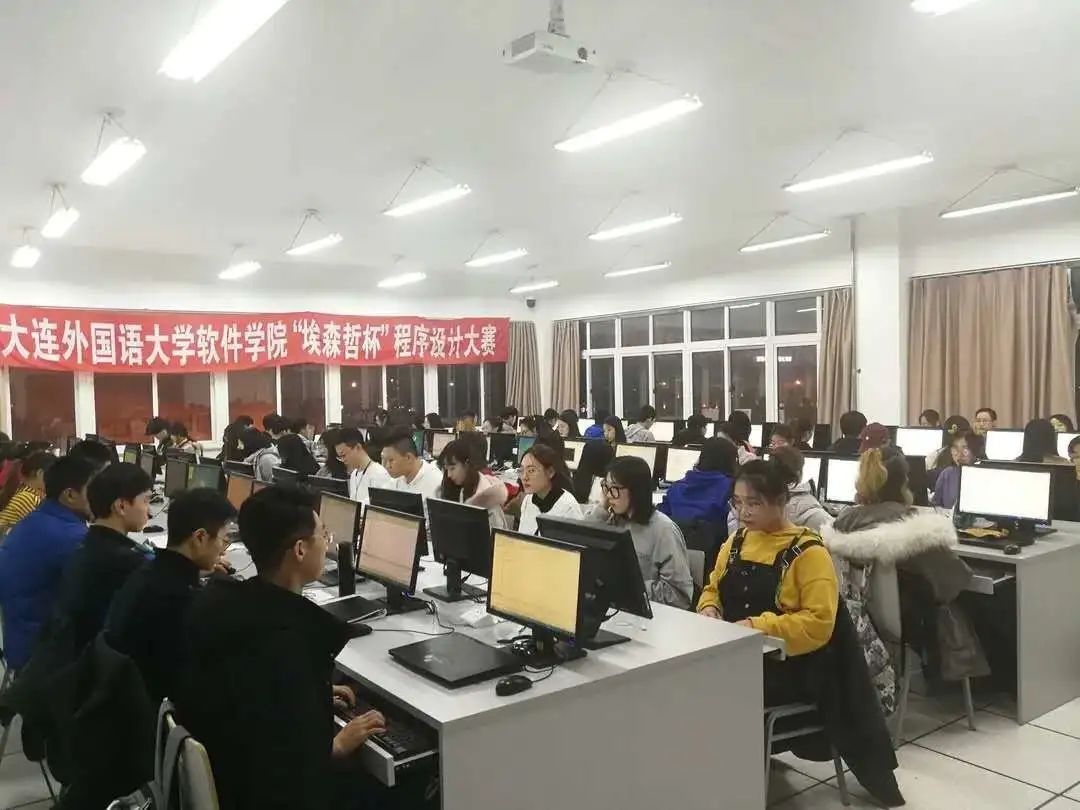
Elite Talent Class
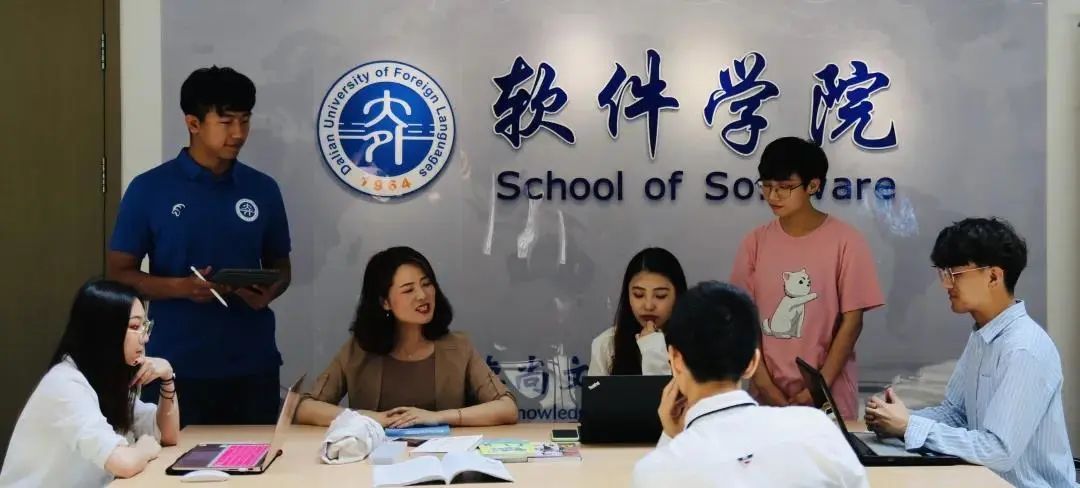
Japanese teacher Park Huishuk provides guidance to students
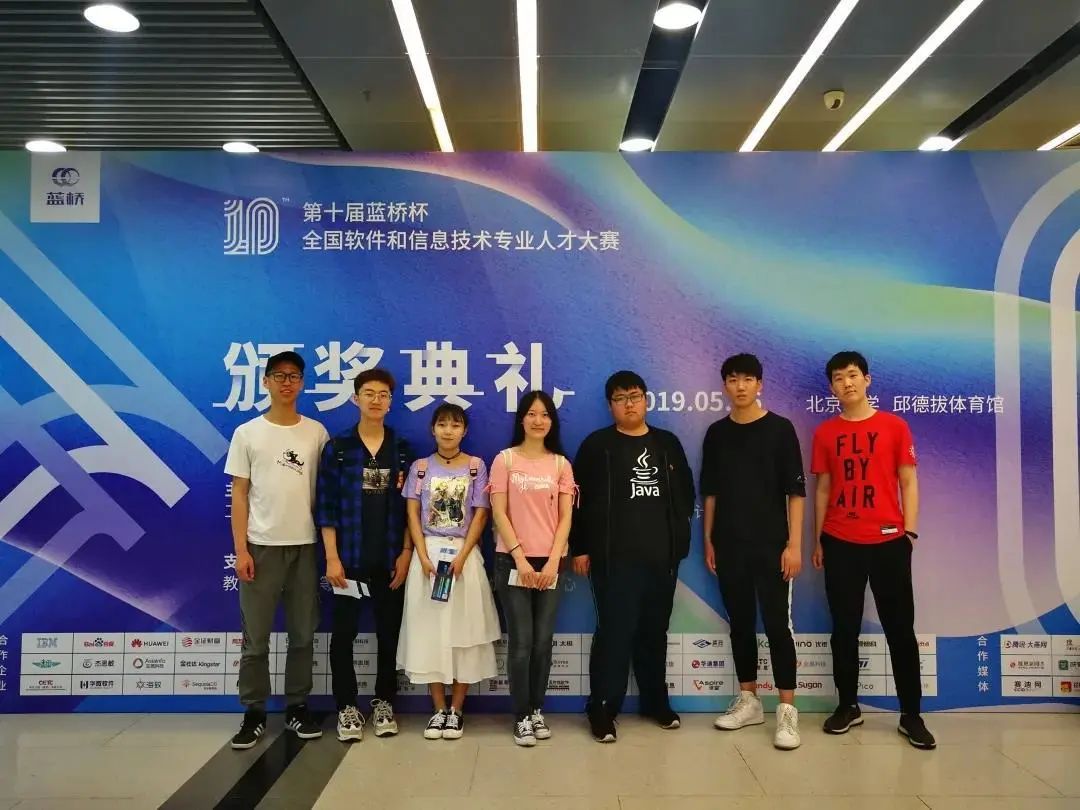
Lanqiao Cup Competition

360 Security Cup Northeast University Network Attack and Defense Competition

Shanghai World Expo Volunteer

Beijing Olympics Volunteer
Research and Study Projects
The college has established cooperative exchange programs with many well-known universities in Japan, South Korea, Europe, and Australia. Students can study abroad through national public programs, “2+2”, “3+1”, “3+1+1 (graduate)”, “3+2 (graduate)”, “3+1+2 (graduate)”, and short-term exchange programs, achieving dual degrees or continuous study for bachelor’s and master’s degrees.

University of Wollongong Australia Study Camp
Employment Directions
Graduates of the School of Software mainly work in software development, e-commerce, e-government, financial services, network security, the Internet, the Internet of Things, and organizations specializing in language.
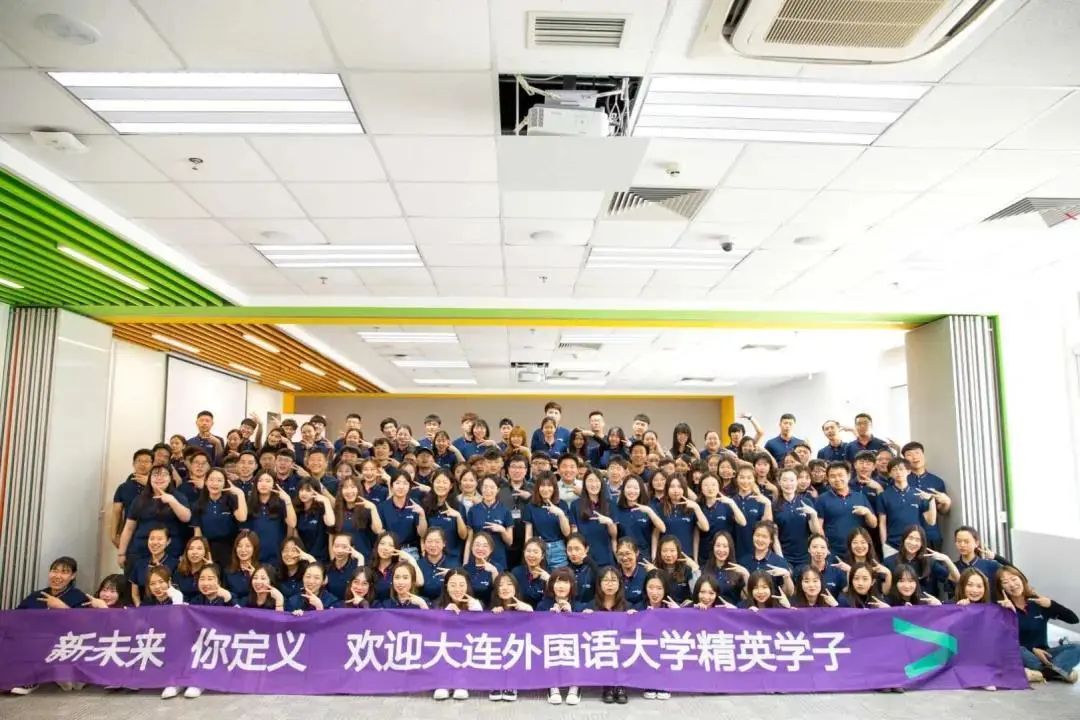
Accenture Customized Class
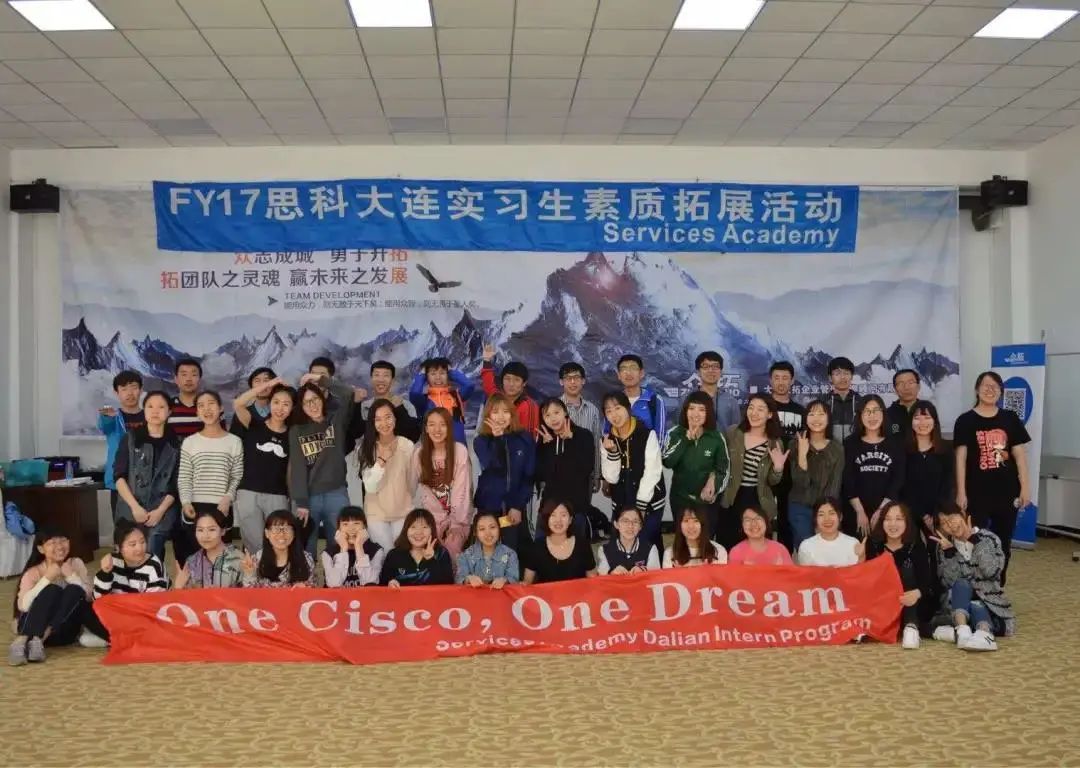
Cisco Technical Services (Dalian) Co., Ltd. Internship Activities

School leaders visit Shanghai Micro Innovation and take a photo with alumnus Tang Jun
Professional Interpretation
Computer Science and Technology: The Backbone of the Software Industry
1. What is the Computer Science and Technology Major?
The Computer Science and Technology major at Dalian University of Foreign Languages aims to cultivate versatile software talents with good career prospects, characterized by “Computer + Bilingual” and “Artificial Intelligence + Language”, achieving the goal of cultivating international, application-oriented research talents. The curriculum emphasizes the ability of students to engage in software design, development, testing, and maintenance in software outsourcing companies, financial institutions, government agencies, and research institutes; mastering the basic theories of artificial intelligence, applying machine learning and deep learning theories and methods to solve application-oriented, versatile, and innovative talents in the field of “language intelligence”, such as natural language understanding, sentiment analysis, machine translation, and other related research hotspots.
2. What does the Computer Science and Technology Major Study?
Currently, the Computer Science and Technology major has two specializations: Web Engineering and Artificial Intelligence. The courses offered mainly include: Calculus, Introduction to Computer Science, Linear Algebra, Discrete Mathematics, Basic Programming, Data Structures and Algorithms, Computer Organization Principles, Digital Logic Circuits, Operating Systems, Object-Oriented Programming, Database Principles, Advanced Object-Oriented Programming, JSP Programming, Computer Networks, Oracle Database Applications, Software Project Management, Software Design and Architecture, Comprehensive Practice in Programming and Algorithms, Computer Network Security, Software Quality Assurance and Testing, IT Frontier Technology Lectures, Basic Probability and Statistics, Enterprise Project Practice, Web Design and Development, JavaEE Architecture and Application Development, Engineering Project Practice, Advanced Python Programming, Scientific Computing and Data Analysis, Natural Language Processing, Machine Learning, Deep Learning, Machine Translation, Text Sentiment Analysis, Knowledge Graphs, etc.
To meet the high demand for foreign language skills in the software industry, the Computer Science and Technology major conducts intensive bilingual teaching in English and Japanese. The foreign language enhancement courses mainly include: IT English Reading, IT English Listening and Speaking, IT English Writing, Advanced IT English, Intermediate English Translation, Advanced English Translation, Japanese, Basic IT Japanese, etc.
3. Features of the Computer Science and Technology Major
The Computer Science and Technology major emphasizes the cultivation of versatile talents in “Computer + Bilingual” and “Artificial Intelligence + Language”, with a curriculum that is oriented towards enterprise needs and industry research hotspots, based on engineering practice, with engineering technology as the main line, focusing on engineering project practice, bilingual learning, and the ability to use computer technology to solve related problems in the field of “language intelligence”. The program recognizes course settings and credits with many well-known foreign universities, providing various study abroad options such as 2+2, 3+1, 3+1+1, 3+2, and 3+1+2.
The Computer Science and Technology major collaborates deeply with many well-known software companies at home and abroad, co-establishing off-campus training practice bases, forming an interactive application-oriented talent cultivation environment. It has established a “synchronous support model for enterprises to conduct practical teaching in schools”, through a “theory-practice-theory-practice” teaching model, repeatedly training students’ engineering practice abilities.
4. Employment and Career Prospects of the Computer Science and Technology Major
Graduates of this major can work in software companies, government agencies, educational departments, and the information technology departments of various large and medium-sized enterprises and institutions, engaging in technical development, teaching, research, and management in the field of computers. Positions include software development engineer, software testing engineer, artificial intelligence engineer, NLP algorithm engineer, etc.
To enhance students’ competitiveness in job selection and employment, the School of Software has signed agreements for vocational quality training with IBM China Customer Innovation Center, talent incubation agreements with Cisco, school-enterprise cooperation talent training agreements with Accenture, and internship agreements with Huaxin Computer Technology Co., Ltd. and VanceInfo Technology Co., Ltd. The employment rate of graduates has exceeded 96% in recent years.
Application Guide
(1) Candidates with a strong interest in computer programming. The Computer Science and Technology major at Dalian University of Foreign Languages provides a complete talent training program for students who are good at thinking, have strong logical thinking abilities, and are enthusiastic about research in the field of “Artificial Intelligence + Language”.
(2) Candidates with a strong interest in foreign language and literature. Leveraging the advantages of foreign language and literature as a key discipline at Dalian University of Foreign Languages, the Computer Science and Technology major provides a first-class learning environment for foreign languages (bilingual in English and Japanese).
(3) Candidates with a strong interest in both computer programming technology and foreign language and literature. The Computer Science and Technology major at Dalian University of Foreign Languages will make you the best student in foreign languages while studying computer science, and the best student in computer science while studying foreign languages, emphasizing comprehensive strength.
(4) Students with intentions to study abroad. The School of Software at Dalian University of Foreign Languages has established mutual recognition of course settings and credits with many well-known universities in Japan, South Korea, Europe, and Australia, providing various study abroad options such as 2+2, 3+1, 3+1+1 (graduate), 3+2 (graduate), and 3+1+2 (graduate), ensuring that there is always an option suitable for you.
Software Engineering: Creators on the Keyboard
1. What is the Software Engineering Major?
Software Engineering (SE) is a discipline that studies the construction and maintenance of effective, practical, and high-quality software using engineering methods. It emphasizes the engineering nature of software development, enabling students to master the basic knowledge, methods, and skills necessary for software requirement analysis, software design, software testing, software maintenance, and software project management, while highlighting the cultivation of students’ professional knowledge and skills, training high-level specialized talents capable of engaging in software development, testing, maintenance, and software project management. It involves programming languages, databases, software development tools, system platforms, standards, design patterns, etc.
Software encompasses a wide range of applications, including web applications, email, embedded systems, human-computer interfaces, office suites, operating systems, compilers, databases, games, etc. Nowadays, the application of computer software has almost covered all industries, such as industry, agriculture, finance, aviation, and government departments.
2. What does the Software Engineering Major Study?
①Core Courses: Python Programming, Basic Programming, Data Structures and Algorithms, Introduction to Software Engineering, Operating Systems, Object-Oriented Programming, Database Principles, Software Project Management, Computer Networks, Software Quality Assurance and Testing, Human-Computer Interaction Software Engineering Methods, Software Design and Architecture, etc.
②Elective Courses: Advanced Object-Oriented Programming, JSP Programming, JSP Programming Practice, Comprehensive Practice in Programming and Algorithms, Web Design and Development, Oracle Database Applications, Software Requirement Analysis, Software Design and Architecture, Engineering Project Practice, Software Construction, Engineering Economics, Computer Multimedia Technology, Basic Probability and Statistics, Advanced Python Programming, Computer-Aided Translation (Bilingual), Microcontroller System Applications and Development, Introduction to Data Science, Embedded System Applications and Development, Foundations of Information Theory, Scientific Computing and Data Analysis, Natural Language Processing, Computer Network Security, Introduction to Japanese Information Security (Bilingual), IT Engineer Career Planning (Bilingual), Algorithm Analysis and Design, Software Development Frontier Technology Lectures, and Team Motivation and Communication, etc.
③Foreign Language Enhancement Courses (Bilingual in Japanese and English): Basic Japanese, Basic Japanese Listening and Speaking, IT Japanese, Business Japanese, Introductory IT English, Intermediate IT English, etc.
3. Features of the Software Engineering Major
The Software Engineering major aims to cultivate talents with a solid foundation in natural sciences, humanities and social sciences, basic theories, professional knowledge in the field of software engineering, and knowledge of software engineering project management, capable of engaging in software requirement analysis, software design and implementation, software testing, software deployment and maintenance, and software project management, with certain innovative capabilities and an international perspective, producing application-oriented, versatile software management talents with “Software + Foreign Language”. The curriculum is oriented towards enterprise needs, based on engineering practice, with engineering technology as the main line, focusing on engineering project practice and foreign language ability (bilingual in Japanese and English). The program recognizes course settings and credits with many well-known foreign universities, providing various study abroad options such as 2+2, 3+1, 3+1+1, 3+2, and 3+1+2.
The Software Engineering major emphasizes deep cooperation with many well-known software companies at home and abroad, co-establishing off-campus training practice bases, forming an interactive application-oriented talent cultivation environment. It has established a “synchronous support model for enterprises to conduct practical teaching in schools”, through a “theory-practice-theory-practice” teaching model, repeatedly training students’ engineering practice abilities. Through a three-stage practical teaching module system of “basic skills training, professional skills training, and comprehensive skills training”, it achieves the “two combinations” and “one transformation”, namely the combination of theoretical teaching and practical teaching, and the combination of engineering training and course experiments, shifting from an emphasis on knowledge transfer to a greater focus on ability and quality cultivation, meeting the training requirements of students at different levels and stages, enhancing students’ comprehensive practical abilities, and emphasizing intensive training to promote the cultivation of engineering practice abilities.
4. Employment and Career Prospects of the Software Engineering Major
The employment prospects for Software Engineering graduates are promising. Graduates mainly work in major software companies, enterprises and institutions, higher education institutions, major research institutes, and important departments such as national defense, engaging in software design, development, application, software testing, and research work.
To enhance students’ competitiveness in job selection and employment, the School of Software has signed vocational quality training agreements with IBM China Customer Innovation Center, talent incubation agreements with Cisco, school-enterprise cooperation talent training agreements with Accenture, and internship agreements with Huaxin Computer Technology Co., Ltd. and VanceInfo Technology Co., Ltd. The employment rate of graduates has exceeded 96% in recent years.
Application Guide
(1) Candidates with a strong interest in computer programming. The Software Engineering major at Dalian University of Foreign Languages provides a complete talent training program for students who are good at thinking, have strong logical thinking abilities, and are enthusiastic about research in the field of software engineering.
(2) Candidates with a strong interest in foreign language and literature. Leveraging the advantages of foreign language and literature as a key discipline at Dalian University of Foreign Languages, the Software Engineering major provides a first-class learning environment for foreign languages (bilingual in Japanese and English).
(3) Candidates with a strong interest in both computer programming technology and foreign language and literature. The Software Engineering major at Dalian University of Foreign Languages will make you the best student in foreign languages while studying computer science, and the best student in computer science while studying foreign languages, emphasizing comprehensive strength.
(4) Students with intentions to study abroad. The School of Software at Dalian University of Foreign Languages has established mutual recognition of course settings and credits with many well-known universities in Japan, South Korea, Europe, and Australia, providing various study abroad options such as 2+2, 3+1, 3+1+1 (graduate), 3+2 (graduate), and 3+1+2 (graduate), ensuring that there is always an option suitable for you.
Network Engineering: Creators of the Internet of Things
1. What is the Network Engineering Major?
Network Engineering is a major established to meet the urgent demand for talent in the network field. This major cultivates talents with a solid foundation in natural sciences, good knowledge of humanities and social sciences, and comprehensive bilingual abilities in Japanese and English; capable of systematically mastering the basic theories and knowledge in computer networks and communication networks; mastering the theories, methods, and technologies for networking, planning, designing, and evaluating various network systems; obtaining good engineering practice training in the design, development, and application of computer hardware and software and network and communication systems, and receiving preliminary training in large-scale network engineering development; capable of engaging in research, teaching, design, development, and other work related to various network systems and computer communication systems in the information industry and other fields.
2. What does the Network Engineering Major Study?
Students in the Network Engineering major mainly study the basic theories and design principles of computer, communication, and network fields, mastering computer communication and network technologies, receiving basic training in network engineering practice, and developing the ability to engage in computer network system design, development, deployment, operation, maintenance, security management, and the ability to develop web network applications and mobile network applications.
① Core Courses: Python Programming, Discrete Mathematics, Basic Programming, Data Structures and Algorithms, Computer Organization Principles, Operating Systems, Database Principles, Computer Networks, Object-Oriented Programming, Routing and Switching Technologies, Network Management and Applications, Computer Network Security, Network Planning and System Integration, etc.
② Elective Courses: Modern Cryptography, Communication Principles, Linux Operating System, Mobile Communication and Wireless Networks, Network Testing and Evaluation, Network Information Countermeasures, Internet Protocol Analysis and Design, Foundations of Information Theory, Cloud Computing Security, Information Security Technology Practice, Introduction to Software Engineering, Advanced Python Programming, Oracle Database Applications, UI Design, Basic Mobile Network Programming, JSP Programming, Software Requirement Analysis, Software Design and Architecture, Product Manager Theory and Practice, Mobile Application Development Practice, Scientific Computing and Data Analysis, Introduction to Internet of Things Technology, Microcontroller System Applications and Development, Embedded System Applications and Development, New Technologies in Network and Information Security, etc.
③ Foreign Language Enhancement Courses (Bilingual in Japanese and English): Basic Japanese, Basic Japanese Listening and Speaking, IT Japanese, Business Japanese, Introductory IT English, Intermediate IT English, etc.
3. Features of the Network Engineering Major
The Network Engineering major follows the educational philosophy of “moral education first, knowledge as the foundation, ability as the focus, and comprehensive development”, actively adapting to the needs of national, industry, and regional economic and social development, cultivating talents with comprehensive development in morality, intelligence, physical fitness, aesthetics, labor, possessing noble qualities, social responsibility, international vision, innovative spirit, and environmental awareness, mastering the basic knowledge of mathematics and natural sciences as well as the planning, design, maintenance management, security assurance, and application software development related theories, knowledge, skills, and methods in computer network systems, with certain engineering management capabilities and good professional qualities, producing international, versatile, application-oriented talents in “Network Engineering + Bilingual in Japanese and English”.
This major is oriented towards regional economic development, with a talent cultivation concept of “discipline major + bilingual in Japanese and English + engineering application + industry certification”, establishing two specializations in information security and network application software development in the senior years, emphasizing the cultivation of innovative practical abilities and highlighting foreign language advantages and quality education throughout the entire talent cultivation process.
The information security direction offers elective courses such as modern cryptography, Linux operating system, foundations of information theory, network information countermeasures, cloud computing security, and information security technology practice.
The network application software development direction offers elective courses such as introduction to software engineering, UI design, basic mobile network programming, JSP programming, software design and architecture, and mobile application development practice.
This major collaborates deeply with many well-known network technology companies at home and abroad, co-establishing off-campus training practice bases. It deepens the school-enterprise cooperation mechanism with world-renowned companies such as Cisco and IBM, establishing an employment-oriented “order-based” talent cultivation model. Through a three-stage practical teaching module system of “basic skills training, professional skills training, and comprehensive skills training”, it achieves the “two combinations” of theoretical teaching and practical teaching, and engineering training and course experiments, shifting from an emphasis on knowledge transfer to a greater focus on ability and quality cultivation, meeting the training requirements of students at different levels and stages, enhancing students’ comprehensive practical abilities in network engineering and network application software development, emphasizing intensive engineering training to promote the cultivation of application-oriented engineering practice abilities. The program recognizes course settings and credits with many well-known foreign universities, providing various study abroad options such as 2+2, 3+1, 3+1+1, 3+2, and 3+1+2.
4. Employment and Career Prospects of the Network Engineering Major
General Secretary Xi Jinping pointed out at the World Internet Conference that a new round of technological revolution centered on information technology is emerging, and the Internet is increasingly becoming a leading force for innovation-driven development, profoundly changing people’s production and life, and strongly promoting social development. China is in a rapid development process of informationization, and during the 13th Five-Year Plan period, China is vigorously implementing the strategy of becoming a strong network country, which will require a large number of network engineering professionals in the future.
The employment market prospects for graduates of this major are broad, as they can engage in computer network system design, development, deployment, operation, maintenance, security management, and network application software development in the information technology industry, financial institutions, government agencies, research institutes, Chinese and foreign enterprises, educational departments, and other fields. Positions include network planner, network engineering designer, pre-sales engineer for system integration, network security engineer, network administrator, network system architect, network service consultant, website designer, network software engineer, mobile development engineer, etc.
To enhance students’ competitiveness in job selection and employment, the School of Software has signed vocational quality training agreements with IBM China Customer Innovation Center, talent incubation agreements with Cisco, school-enterprise cooperation talent training agreements with Accenture, and internship agreements with Huaxin Computer Technology Co., Ltd. and VanceInfo Technology Co., Ltd., as well as overseas internship base agreements with Kyoto University of Information Science in Japan. The employment rate of graduates has exceeded 96% in recent years.
Application Guide
(1) Candidates with a strong interest in computer network application technology. Science students who wish to engage in computer network system planning and construction, network management and applications, network and information security, and network application software development can apply for this major;
(2) Candidates with a strong interest in foreign language and literature. Leveraging the advantages of foreign language and literature as a key discipline at Dalian University of Foreign Languages, the Network Engineering major provides a first-class learning environment for foreign languages (bilingual in Japanese and English);
(3) Candidates with a strong interest in both network application technology and foreign language and literature. The Network Engineering major at Dalian University of Foreign Languages will make students the best in foreign languages while studying computer science, and the best in computer science while studying foreign languages, emphasizing comprehensive strength;
(4) Students with intentions to study abroad. The School of Software at Dalian University of Foreign Languages has established mutual recognition of course settings and credits with many well-known universities in Japan, South Korea, Europe, and Australia, providing various study abroad options such as 2+2, 3+1, 3+1+1 (graduate), 3+2 (graduate), and 3+1+2 (graduate), ensuring that there is always an option suitable for you.
Information Management and Information Systems: The Perfect Integration of Computer Science and Management
1. What is the Information Management and Information Systems Major?
The Information Management and Information Systems (IMIS) major is a highly practical and innovative interdisciplinary field that integrates computer science and management science. It enables students to collect and process digital information through computer technology, transforming it into useful information, and using scientific methods to design and develop management information systems for classifying, managing, analyzing, and maintaining information. In the era of big data, both government departments and enterprises require a large number of professionals in information management to engage in the collection, transmission, storage, processing, and comprehensive application of information data to improve the scientific management of internal organizations and enhance work efficiency.
2. What does the Information Management and Information Systems Major Study?
① Core Courses: Management, Economics, Statistics, Operations Research, Management Information Systems, Python Programming, Basic Programming, Data Structures and Algorithms, Object-Oriented Programming, Database Principles, Computer Networks, Information Technology Project Management, Information Systems Analysis and Design, etc.
② Elective Courses: Accounting, Operating Systems, Web Design and Development, Network Management and Applications, Advanced SQL Server Database Programming, Information Systems Development, Software Design and Architecture, SAP Development Skills Training, SAP Simulation Project Development, Introduction to Data Science, Advanced Python Programming, Scientific Computing and Data Analysis, Natural Language Processing, Software Requirement Analysis, Human-Computer Interaction Software Engineering Methods, Algorithm Analysis and Design, Computer Network Security, IT Frontier Technology Lectures, etc.
③ Foreign Language Enhancement Courses: Basic Japanese, Basic Japanese Listening and Speaking, IT Japanese, Business Japanese, Introductory IT English, Intermediate IT English, etc.
3. Features of the Information Management and Information Systems Major
The IMIS major aims to cultivate students with a solid foundation in mathematics, management theory, economic theory, information technology knowledge, and application abilities, mastering methods and technologies in the planning, analysis, design, implementation, and management of information systems, possessing certain practical and research abilities in information system and information resource development and utilization, with good comprehensive application abilities in Japanese and English, innovative practical abilities, and an international perspective, producing application-oriented, versatile information management talents with “Information Management + Foreign Language”. The curriculum is oriented towards enterprise needs, based on engineering applications, with engineering technology as the main line, focusing on engineering project practice and foreign language ability (bilingual in Japanese and English). The program recognizes course settings and credits with many well-known foreign universities, providing various study abroad options such as 2+2, 3+1, 3+1+1, 3+2, and 3+1+2.
The IMIS major collaborates deeply with many well-known information technology companies (IBM, Accenture, Cisco, Huaxin, etc.), co-establishing off-campus training practice bases (Dalian, Beijing, Japan, etc.), forming an interactive application-oriented talent cultivation environment. Through a three-stage practical teaching module system of “basic skills training, professional skills training, and comprehensive skills training”, it achieves the “two combinations” of theoretical teaching and practical teaching, and engineering training and course experiments, shifting from an emphasis on knowledge transfer to a greater focus on ability and quality cultivation, meeting the training requirements of students at different levels and stages, enhancing students’ comprehensive practical abilities in information systems, emphasizing intensive engineering training to promote the cultivation of application-oriented engineering practice abilities.
4. Employment and Career Prospects of the Information Management and Information Systems Major
Graduates of this major have a wide range of employment opportunities, involving information management, information processing, computer and office network applications, e-commerce, communication, and other different industry sectors, including multinational software companies, information consulting firms, government management departments, financial institutions, research institutes, and other units engaged in information management, information system analysis, design, implementation, maintenance, and evaluation.
To enhance students’ competitiveness in job selection and employment, the School of Software has signed customized training agreements with IBM, talent cultivation cooperation agreements with Accenture, talent incubation agreements with Cisco, internship agreements with Huaxin Computer Technology Co., Ltd. and VanceInfo Technology Co., Ltd., and overseas internship base agreements with Kyoto University of Information Science in Japan. Nearly a hundred information technology companies come to the School of Software to recruit students in the second semester of their junior year, signing internship agreements, with an employment rate of over 95% for graduates in recent years.
Application Guide
(1) Candidates with a strong interest in information management technology. The IMIS major at Dalian University of Foreign Languages provides a complete talent training program in computer science and management science.
(2) Candidates with a strong interest in foreign language and literature. Leveraging the advantages of foreign language and literature as a key discipline at Dalian University of Foreign Languages, the IMIS major provides a first-class learning environment for foreign languages (bilingual in Japanese and English).
(3) Candidates with a strong interest in both information management technology and foreign language and literature. The IMIS major at Dalian University of Foreign Languages will cultivate the best students in foreign languages while studying computer science, and the best students in computer science while studying foreign languages, emphasizing comprehensive strength.
(4) Students with intentions to study abroad. The School of Software at Dalian University of Foreign Languages has established mutual recognition of course settings and credits with many well-known universities in Japan, South Korea, Europe, and Australia, providing various study abroad options such as 2+2, 3+1, 3+1+1 (graduate), 3+2 (graduate), and 3+1+2 (graduate).
(5) Candidates without a clear plan for university. The IMIS major, as an interdisciplinary field integrating computer science and management science, along with foreign language culture throughout, covers three major disciplines: engineering, management, and literature, helping you find direction in life.
Reprinted from | School of Software, Dalian University of Foreign Languages
